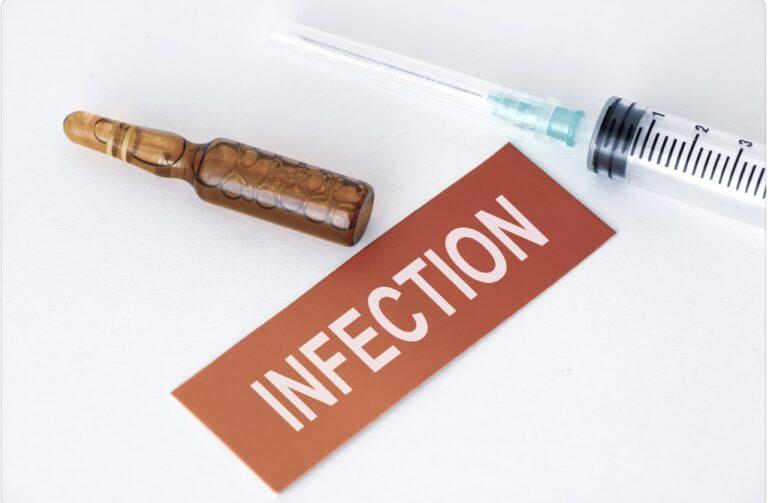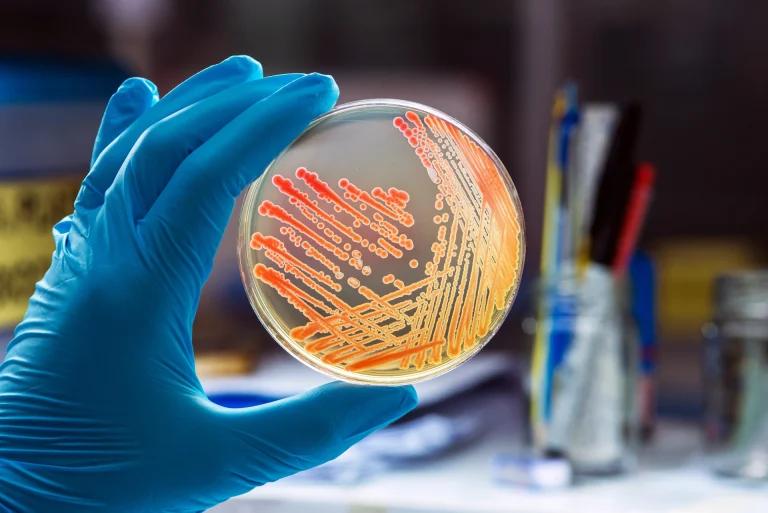Urinary tract infections (UTIs) are a common and often frustrating health problem, particularly among women. While many people assume that UTIs are caused by poor hygiene or other lifestyle factors, the reality is that the vast majority of these infections are the result of a specific type of bacteria – Escherichia coli, more commonly known as E. coli. In this article, we’ll look into the reasons behind why E. coli infections can present in urine and discuss some effective ways to prevent and treat bladder infections.
E. coli bacteria
E. coli is a versatile bacterium that is found in the gastrointestinal tract of nearly all people and animals. While most types of E. coli strains are harmless and even beneficial, there are a few that can cause serious illness, including urinary tract infections. These pathogenic strains of E. coli are particularly adept at making their way from the anus to the urethra, where they can then move into the bladder and cause problems. A UTI that resides in the bladder is called cystitis; one that resides in the urethra is called urethritis.
Why are women more likely to get UTIs?
One of the main reasons why women are more prone to E. coli-related UTIs is their unique urinary system. Compared to men, women have a shorter urethra, which means that the distance bacteria must travel to reach the bladder is significantly shorter. Also, the female urethra is situated near the anus, making it easier for E. coli to make the jump from one opening to the other.
Symptoms of a UTI
The symptoms of an E. coli-related UTI can vary in severity, but they typically include a painful or burning sensation during urination, a frequent or urgent need to urinate, and urine that appears cloudy, bloody, or foul-smelling. In more severe cases, the infection may spread to the kidneys, leading to symptoms like back pain, abdominal pain, fever, nausea, and vomiting.
Young children, older people, pregnant women and women after menopause have a higher risk of developing serious illnesses with UTIs.
Diagnosing E. coli UTIs
If you suspect that you may have a UTI, it’s important to seek medical attention as soon as possible. Your healthcare provider will likely begin by performing a urine test, which can detect the presence of white blood cells, bacteria, and other signs of infection. In some cases, a urine culture (urinalysis) may also be ordered to identify the specific strain of E. coli or other bacteria responsible for the infection.
The Importance of prompt diagnosis
Prompt diagnosis and treatment of E. coli UTIs is crucial, as the infection can quickly spread to the kidneys if left untreated. Kidney infections, also known as pyelonephritis, can be a serious and potentially life-threatening condition, so it’s important to seek medical care at the first sign of a UTI.
Treating E. coli UTIs
The standard treatment for an E. coli-related UTI is a course of antibiotics, which work to eliminate the bacterial infection. Depending on the severity of the infection, the course of antibiotics may range from 3 to 14 days, with longer treatments typically reserved for more complex or recurrent infections.
Antibiotic resistance
One concerning trend in the world of E. coli UTIs is the rise of antibiotic-resistant strains of the bacteria. As the overuse and misuse of antibiotics has become more prevalent, some E. coli strains have developed the ability to withstand even the most potent antimicrobial drugs. This can make treatment more challenging and increase the risk of complications.
Preventing E. coli UTIs
Fortunately, there are several steps that individuals can take to reduce their risk of developing an E. coli-related UTI. These include:
Maintaining good hygiene
Wiping from front to back after after a bowel movement. Avoid the use of irritating feminine products, and practicing proper hand hygiene can all help to prevent the spread of E. coli from the anus to the urethra.
Staying hydrated
Plenty of fluid intake, especially drinking water, can help to flush bacteria out of the urinary tract and reduce the risk of infection.
Considering cranberry juice
While the evidence is not conclusive, some studies have suggested that consuming cranberry juice may help to prevent UTIs by inhibiting the adhesion of E. coli to the bladder wall.
Managing risk factors
Individuals with certain risk factors, such as a history of UTIs, pregnancy, or a weakened immune system, may need to take additional precautions or work closely with their healthcare provider to prevent and manage E. coli-related infections.
How to prevent recurrent infections?
For some individuals, E. coli UTIs can become a recurring problem, with multiple infections occurring within a short time. This condition, known as recurrent UTIs, can be particularly frustrating and may require more specialised treatment approaches.
Identifying the underlying cause
In cases of recurrent UTIs, it’s important to work closely with a healthcare provider to identify the underlying cause.
Certain factors can increase the risk of developing a UTI, including:
- Women have a shorter urethra than men, making it easier for bacteria to reach the bladder
- Sexual intercourse can introduce bacteria into the urinary tract
- Hormonal changes and the growing uterus can put pressure on the bladder during pregnancy, increasing the risk of UTIs
- Individuals who require a urinary catheter have a higher risk of developing a UTI
- Diabetes or cancer treatment can weaken the body’s ability to fight off infections
- Structural blockages in the urinary tract can make it more susceptible to infection
Long-term antibiotic use
For individuals with a history of frequent UTIs, a long-term, low-dose course of antibiotics may be prescribed to help prevent future infections. This approach can be effective, but it also carries the risk of contributing to the development of antibiotic-resistant strains of E. coli.
Serious consequences of E. coli UTIs
While most E. coli-related UTIs can be effectively treated with a course of antibiotics, it’s important to be aware of the potential for more serious complications if the infection is left untreated or allowed to progress.
Kidney infections
If an E. coli infection is not addressed promptly, it can spread from the bladder to the kidneys, leading to a condition known as pyelonephritis. Kidney infections can be extremely serious, potentially causing permanent kidney damage and even leading to life-threatening complications like sepsis.
Sepsis
Sepsis is a potentially life-threatening condition that can occur when an infection, such as a UTI, triggers an overwhelming immune response. This can lead to organ and tissue damage, and even death if not treated quickly and effectively.
Pregnancy complications
For pregnant women, an untreated E. coli UTI can have serious consequences for both the mother and the developing baby. These infections have been linked to an increased risk of preterm birth, low birth weight, and other complications.
Conclusion
E. coli-related urinary tract infections are a common and often frustrating health issue, particularly for women. By understanding the underlying causes, recognising the symptoms, and taking proactive steps to prevent these infections, individuals can take control of their urinary health and avoid the potential complications that can arise from untreated E. coli infections.
Sources
- Urinary tract infection symptoms-causes – Mayo Clinic
- Urinary tract infections – UCSF Health
- E. coli-infection – Health Direct
Medical Disclaimer
NowPatient has taken all reasonable steps to ensure that all material is factually accurate, complete, and current. However, the knowledge and experience of a qualified healthcare professional should always be sought after instead of using the information on this page. Before taking any drug, you should always speak to your doctor or another qualified healthcare provider.
The information provided here about medications is subject to change and is not meant to include all uses, precautions, warnings, directions, drug interactions, allergic reactions, or negative effects. The absence of warnings or other information for a particular medication does not imply that the medication or medication combination is appropriate for all patients or for all possible purposes.








